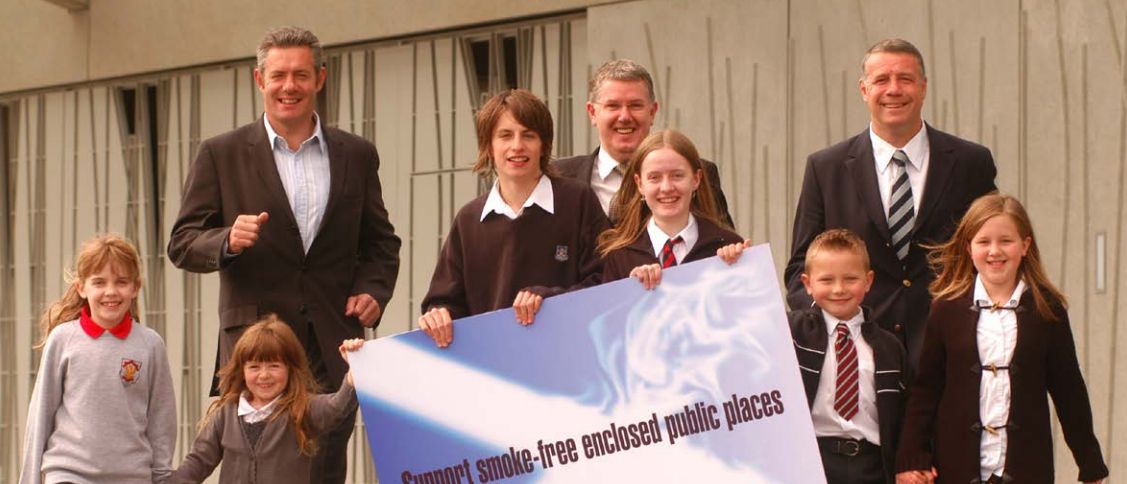
Smoke Free Public Places
A day in the pub, or even a meal at a restaurant, was often associated with sitting in a cigarette induced fug. However at the turn of the 21st century, health charities decided to take on tobacco giants in a bid to reduce exposure to second-hand smoke.

Scotland was the first country in the UK and the second in Europe to introduce smoke-free legislation. The campaign was led by ASH Scotland, with support from a coalition of Scotland’s health charities and medical bodies, focusing on providing evidence-based research and information to MSPs, the public and the media in the face of strong opposition from the tobacco industry and licensed trade.
The Smoking, Health and Social Care (Scotland) Act 2005 made it an offence to smoke in any public space in Scotland, with a few exceptions, such as prisons and care homes. Those opposed to the ban, including the Scottish Licensed Trade Association, predicted pubs and restaurants would close as a result and people would smoke more at home instead. But their predictions never came to fruition and levels of public support for the ban actually increased afterwards.
ASH Scotland, led by then chief executive Maureen Moore, had been collecting evidence on the health risks of second-hand smoke for several years. The new Scottish Government initially favoured a voluntary approach but ASH Scotland surveys proved that this was not working in practice.

The charity initially focused on communicating evidence on heart and lung damage by smoke, then on rebuttal arguments to counteract a tobacco industry funded PR campaign of misinformation and scaremongering.
Detailed responses were submitted to government consultations on smoking in public places, focused briefings circulated to MSPs and a cross-party group on tobacco control formed.
Sheila Duffy, current chief executive of ASH Scotland, said the main challenge was an initial lack of interest from the public and media.
“The press was very hostile, saying it would kill the pub culture and spoil people’s fun. We had to frame it as a debate about health, about a toxic substance, not people’s comfort. The heated media debate helped explain to people what it was about. In the end it was the change in public opinion which pushed it forward. It helped that Ireland – a similar society and culture to ours - had introduced a ban on smoking in workplaces in 2004 to protect staff’s health.”
MSP Stewart Maxwell, the SNP spokesperson on public health, was a strong supporter, proposing a private Member’s Bill which was later picked up by the Scottish Government, supported by First Minister Jack McConnell (Labour) and Health Minister Andy Kerr (Labour), and widened to include enclosed public places.
Research collated by ASH Scotland in 2016 to mark the act’s 10-year anniversary found significant health benefits, as well as changes in public behaviour and attitudes to smoking.

